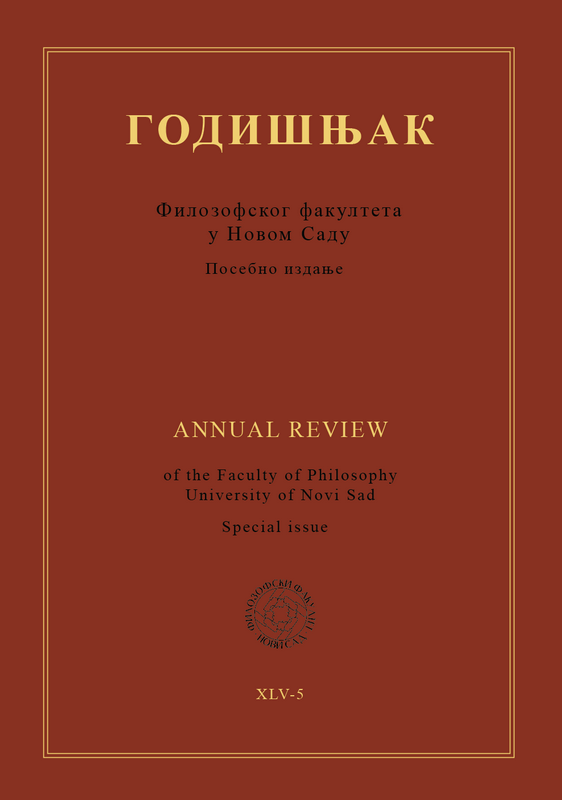SEMANTIC AND PRAGMATIC ASPECTS OF ENGLISH ANY- AND SLOVENE RANDOMNESS INDEFINITES
Main Article Content
Abstract
The present paper discusses semantic and pragmatic features of English any-indefinites, and Slovene bare and koli-indefinites. In the Slovene linguistic literature, both bare and koli-indefinites have been known as randomness pronouns. However, examples from the Slovene reference corpus Gigafida 2.0 show that these indefinites are not always interchangeable, as their mutual name might suggest. Koli-indefinites strongly resemble any-indefinites, which are negative polarity items: they seek downward entailing environments in which they can but need not be stressed, depending on whether their inherent even-operator is highlighted or not. What is more, both any- and koli-indefinites necessarily acquire stress and generate free-choice inferences in non-downward entailing modal contexts. Slovene bare indefinites, on the other hand, share only certain features of unstressed any-indefinites: they behave like existential quantifiers and express the speaker’s ignorance or indifference. Unlike the any-series, the bare series can be used in the scope of non-adversative predicates and cannot trigger negative bias in questions. This might suggest that Slovene bare indefinites do not contain an even-operator. What is more, they are unable to generate free-choice readings, which are typical of any- and koli-indefinites.
Downloads
Article Details
References
Fauconnier, G. (1975). Pragmatic Scales and Logical Structure. Linguistic Inquiry, VI/3, 353–375.
Giannakidou, A. (1998). Polarity Sensitivity as (Non)Veridical Dependency. Amsterdam: John Benjamins.
Gigafida 2.0: Korpus pisne standardne slovenščine. (2019). Available at: https://viri.cjvt.si/gigafida (2019, November 15).
Heim, I. (1984). A Note on Negative Polarity and Downward Entailingness. In: Jones, C. & Sells, P. (eds.) (1984). Proceedings of NELS 14. Amherst: University of Massachusetts. 98–107.
Horn, L. (2005). Airport ‘86 Revisited: Toward a Unified Indefinite Any. In: Carlson, G. N. & Pelletier, F. J. (eds.) (2005). Reference and Quantification: The Partee Effect. Stanford: CSLI Publications. 179–205.
Ilc, G. (2019). Aspects of Negation in English and Slovenian. Ljubljana: Znanstvena založba FF.
Israel, M. (2011). The Grammar of Polarity: Pragmatics, Sensitivity, and the Logic of Scales. Cambridge: CUP.
Kadmon, N. & Landman, F. (1993). Any. Linguistics and Philosophy, 16, 353–422.
Krifka, M. (1994). The Semantics and Pragmatics of Weak and Strong Polarity Items in Assertions. In: Harvey, M. & Santelmann, L. (eds.) (1994). SALT IV. Ithaca: Cornell University. 195–219.
Ladusaw, W. A. (1980). Polarity Sensitivity as Inherent Scope Relations. New York: Garland Publications.
Toporišič, J. (2000). Slovenska slovnica. Maribor: Obzorja.




